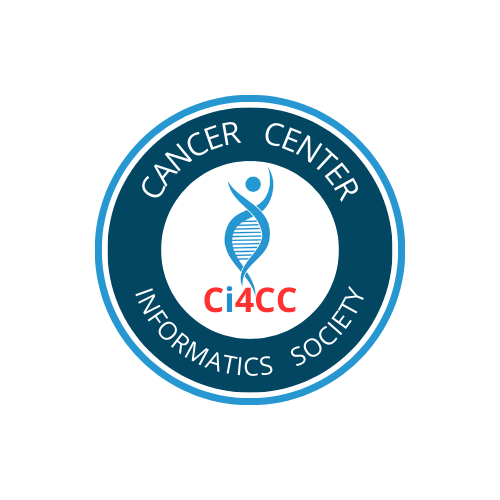Implementation of the NCI’s National Clinical Trials Network
The National Cancer Institute is launching a new clinical trials research network intended to improve treatment for the more than 1.6 million Americans diagnosed with cancer each year. The new system, NCI’s National Clinical Trials Network (NCTN), will facilitate the rapid initiation and completion of cancer clinical trials based on improvements in data management infrastructure, the development of a standardized process for prioritization of new studies, consolidation of its component research groups to improve efficiency, and the implementation of a unified system of research subject protection at over 3,000 clinical trials sites. Grants to fund the program will be awarded early in the spring of 2014.
Despite its solid record of accomplishment, the individual components of the NCI’s previous national clinical trials program (the Cooperative Groups) had become less efficient, necessitating changes to several of its operating procedures over the past decade. A 2010 report from the Institute of Medicine (see http://iom.edu/Reports/2010/A-National-Cancer-Clinical-Trials-System-for-the-21st-Century-Reinvigorating-the-NCI-Cooperative.aspx ) validated and refined the nature of the changes that needed to be undertaken. The Institute of Medicine suggested four overarching goals to guide improvement efforts:
- Improving the speed and efficiency of the design, launch, and conduct of clinical trials
- Making optimal use of scientific innovations
- Improving selection, prioritization, support, and completion of clinical trials
- Fostering expanded participation of both patients and physicians.
In particular, recommendations from the Institute of Medicine and others stressed that it was important for NCI to consolidate its late-phase clinical trials program into a smaller number of groups, each with greater capabilities and appropriate incentives to promote better overall system integration and cooperation. Those recommendations led NCI to develop the new NCTN, focusing on four overarching goals that will guide the new system: integration, prioritization, efficiency, and innovation.
The NCTN features many changes that will enhance national cancer clinical trials research activities, specifically:
- The new system will use a single, common IT data management system (called Medidata RAVE) for all trials, facilitating participation by member sites in all studies, irrespective of the NCTN organization leading the trial. The uniformity of a single clinical trials system used by all of the members of the network will aid in the rapid development and conduct of studies as well as analysis of clinical trial findings.
- The NCI Central Institutional Review Board (CIRB) will be expanded to cover studies conducted by the entire system, which should help sites open more trials. Previously, individual sites had to conduct their own ethics review. Having a single, centralized ethics review conducted by the NCI CIRB will harmonize the system, thereby lowering cost, time, and personnel needed for ethics review.
- Tumor specimen banks and the informatics systems that will allow for the banks to be efficiently integrated have both been redesigned so that they can be used more efficiently in support of the development of predictive molecular tests to guide treatment decisions for patients.
“The new network represents an unmatched effort to integrate and streamline the process of cancer clinical trials research,” said James Doroshow, M.D., deputy director for clinical and translational research at NCI. “The conduct of NCI-supported trials, which are publicly funded, involves a complex system of designing, reviewing, and initiating studies. The new NCTN replaces a structure that was more than 55 years old.”
NCTN employs an inclusive process for generating studies and conducting clinical trials using broad representation from the oncology field, including academic researchers, as well as professional organizations, patients, and advocates. In particular, community-based clinical trials play an important role in expanding the implementation of research findings to encompass all phases of cancer care delivery. A new system to support clinical trials research in the community setting, the NCI Community Oncology Research Program (NCORP), which will play a critical, complementary role to the NCTN, is being launched later this year and will involve both cancer treatment and cancer care delivery research.
The NCTN will focus on phase 3 trials, the gold standard for establishing new treatments. It is anticipated that grant support for the NCTN program could be in the range of $150 million per year with additional funds for central administrative support made available through other NCI support contracts and grant programs.
Following the results of peer review, four adult Network groups and one pediatric group, each with its own operations and statistical centers, will be funded. The new Network groups will be engaged in closely knit collaborations to study and evaluate new cancer treatments and advanced approaches to imaging. By comparison, the former program contained nine adult groups, each with its own administrative and statistical centers. The NCTN will also include a Canadian group in the Network as NCI has had long-standing collaborations with Canadian investigators in clinical trials.
Lead Academic Participating Site (LAPS) grants, created specifically for the NCTN, target many of NCI’s designated Cancer Centers. LAPS will provide scientific leadership in development and conduct of clinical trials in association with the adult clinical trial groups. The LAPS will receive increased funding because of higher patient enrollment costs, but must maintain a high performance standard in patient accrual. About 30 LAPS will work together with one or more of the new NCTN adult groups, expanding the reach of the network.
One important outcome of this new Network will be the ability to facilitate the conduct of trials in rare tumors where patient accrual has always been very difficult. The availability of a national network of clinical trials sites to locate and enroll patients with unusual cancers should enhance the feasibility of conducting such studies. Also, as more cancers are molecularly defined and classified into smaller subsets, the new network structure will support the molecular screening studies needed to define and locate the smaller groups of patients who might be eligible for such studies.
“NCTN investigators are better poised than ever to address the most critical clinical research questions,” said Jeff Abrams, M.D., associate director of NCI’s Cancer Therapy Evaluation Program. “Employing the newly revitalized and efficient NCTN, scientists can conduct trials concentrating on specific cancers, specific populations, or particular methods, such as genetic screening of tumors, imaging, radiation, and surgery.”
Share this Article with others





